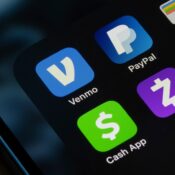Steve Weisman is a lawyer, college professor, author and one of the country’s leading experts in cybersecurity, identity theft and scams. See Steve’s other Con Watch articles.
Technology has made life easier for us in many ways, but it also has made life easier for scammers who use computerized autodialers to blast millions of pre-recorded phone messages called robocalls. These calls are intended to cheat people out of their money in a variety of ways, including by luring them into providing personal information that is used for identity theft or to sign them up for worthless goods and services.
One of the most infamous robocall scams involves “Rachel from Card Services,” whose recorded message tells people they are eligible for a lower interest rate. You are then connected to a scammer who promises a low rate in exchange for your credit card number or other personal information.
“Rachel from Card Services” was a scam: Victims’ interest rates were never lowered, and the victims were charged for services they didn’t want. Scammers using the same “Rachel” recording have been shut down numerous times by the Federal Trade Commission and various law enforcement agencies, but, like playing whack-a-mole at a carnival, as soon as they stop one robocall scammer, another pops up. According to the FTC, Americans received approximately 2.4 billion robocalls each month during 2016.
Recently, the FTC and 10 states took action against a scammer who used illegal robocalls and telemarketing to sell Caribbean cruises. Victims were told they would receive a free cruise merely for participating in a survey; the callers would then talk their victims into paying for expensive, higher-level cruise packages. Between October 2011 and July 2012, the scammers made 15 million illegal robocalls each day.
Can’t You See Them Coming?
Through a technique called spoofing, some robocalls may appear on your Caller ID as coming from a legitimate source, such as the IRS (which does not use robocalls). This tactic tricks many people into believing that the call is legitimate. Fortunately, it’s easy to know when there’s a scammer on the other end of a robocall. Since 2009, it has been illegal for commercial robocalls to be made to you without your written permission. Politicians, pollsters, and charities are still permitted to make robocalls.
However, you can never be sure who is on the other end of the line, so you should never provide personal information, such as your credit card number, to anyone calling you. If a robocall gets you interested in donating to a particular charity, you should still terminate the call and look up the charity online to see where to make a donation.
How to Protect Yourself from Robocalls
One step you can take to help protect yourself from robocalls is to sign up for the federal Do-Not-Call List for both your landline and cellphone at www.donotcall.gov. Once you are on the Do-Not-Call List, legitimate telemarketers are not permitted to call you. So if you get a call from a telemarketer after you have enrolled, you know that the call is from someone who is violating the law and cannot be trusted.
If you ever do answer a robocall, never press 1 or any other number, even if it’s only to be taken off of a calling list. Pressing any number during a robocall only confirms to the scammer that your number is legitimate, which means they’ll keep calling.
You can also check with your phone company to ask what they are doing to help block robocalls. Phone companies and the Federal Communications Commission are both working to reduce the number of robocalls. AT&T recently announced that it is using analytic software to detect suspicious calling patterns, such as repeated short calls to phone numbers on the federal Do-Not-Call List. According to AT&T, it screens about 1.5 billion calls a day and blocks approximately 12 million robocalls each weekday. T-Mobile now offers a service called Scam Block that alerts its customers to likely robocalls. The customer can then choose to either ignore or answer the call.
Finally, you can use software to block suspicious calls. In 2013, the FTC had a contest to develop a way to effectively defeat robocalls. The winners were Aaron Foss and Serdar Danis, who developed software that filters out automated or suspicious telephone calls. Their software is available through Nomorobo; it’s free for landlines and $1.99 per month for cellphones.
Become a Saturday Evening Post member and enjoy unlimited access. Subscribe now




Comments
after you hang up dial 61* That blocks future calls.
after you hang up dial 61* . They are blocked.
There are also those non-robocalls. When a real person who tells me his name is Jeff, but has an Indian accent, and there’s noise in the background, says the web has reported that I have a problem with my computer, I say, “I’ve had so many problems with that computer I finally gave it to Goodwill.” He promptly hangs up.
Nomorobo is great but doesn’t let u see the number calling. Terminates the call after fist ring!